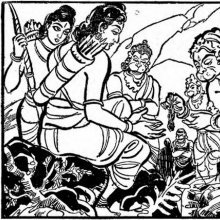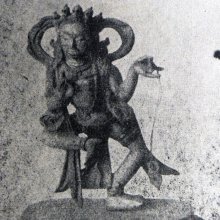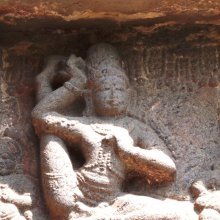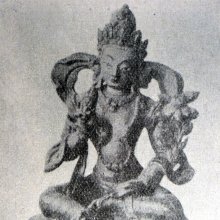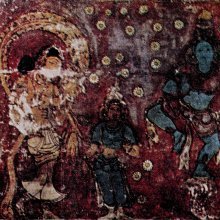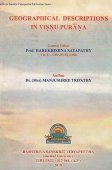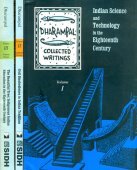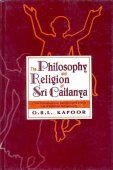Account: 1 definition
Introduction:
Account means something in the history of ancient India. If you want to know the exact meaning, history, etymology or English translation of this term then check out the descriptions on this page. Add your comment or reference to a book if you want to contribute to this summary article.
Images (photo gallery)
(+5 more images available)
India history and geography
Source: Singhi Jain Series: Ratnaprabha-suri’s Kuvalayamala-katha (history)Accounts (of one’s past life) were commonly painted on Citrapaṭas (depicting scenes of human life) in ancient India, as mentioned in the Kathās (narrative poems) such as Uddyotanasūri in his 8th-century Kuvalayamālā (a Prakrit Campū, similar to Kāvya poetry).—Pages 190 ff.: Here we have a description of the second Citrapaṭa. It was a painting depicting the city of Campā with its people, houses, citizens, beautified with bejewelled ornaments, market places, its rich merchant and his wife and detailed account of one’s bhavāntara or past life.

The history of India traces the identification of countries, villages, towns and other regions of India, as well as mythology, zoology, royal dynasties, rulers, tribes, local festivities and traditions and regional languages. Ancient India enjoyed religious freedom and encourages the path of Dharma, a concept common to Buddhism, Hinduism, and Jainism.
See also (Relevant definitions)
Full-text (+3632): Itihasa, Hishebi, Botakhata, Rojamela, Dvaidha, Gairaruju, Copadi, Khatevahi, Hisaba, Hisab, Shrikarana, Nimitta, Kaditamatya, Gudastabaki, Jammakharca, Bahi, Lekha, Krite, Majamudara, Terij.
Relevant text
Search found 412 books and stories containing Account; (plurals include: Accounts). You can also click to the full overview containing English textual excerpts. Below are direct links for the most relevant articles:
Blue Annals (deb-ther sngon-po) (by George N. Roerich)
Chapter 4a - Untitled responses to questions regarding the Blue Annals < [Book 15 - Monastic Systems]
Chapter 12 - Disagreements in (Kālacakra) lineage accounts < [Book 10 - The Kālacakra]
Chapter 7 - Tibetan imperial lines < [Book 1 - The beginning of the story of the Doctrine]
Historical Elements in the Matsya Purana (by Chaitali Kadia)
Historical Elements (3): Foreign Accounts < [Chapter 2 - History and Historical elements]
Historical Elements in the Maha-Purāṇas (Introduction) < [Chapter 3 - Historical elements in the Mahā-Purāṇas]
Geographical History in the Matsya Purāṇa (Introduction) < [Chapter 4 - Geographical history in the Matsya-Purāṇa]
Sanskrit sources of Kerala history (by Suma Parappattoli)
1. Introduction (accounts of early Indian History) < [Chapter 3 - Historical Details from Mahakavyas]
5.3. Kolanrpotpatti < [Chapter 2 - Historical details from Mahatmyas and Prashastis]
5.7. Udayavarmacarita Sangraha alias Desyastaka < [Chapter 2 - Historical details from Mahatmyas and Prashastis]
Kautilya Arthashastra (by R. Shamasastry)
Chapter 7 - The Business of Keeping up Accounts in the Office of Accountants < [Book 2 - The duties of Government Superintendents]
Chapter 35 - Revenue-Collectors and Spies < [Book 2 - The duties of Government Superintendents]
Chapter 1 - Encampment < [Book 10 - Relating to War]
Amaravati Art in the Context of Andhra Archaeology (by Sreyashi Ray chowdhuri)
Chinese accounts of Dhānyakaṭaka < [Chapter 4 - Survival of Amarāvatī in the Context of Andhra Art]
Religious background of early Andhra Pradesh < [Chapter 3 - Amarāvatī and the Formative Stage of the Buddhist Art]
Buddhist Symbols (Introduction) < [Chapter 3 - Amarāvatī and the Formative Stage of the Buddhist Art]
The Chaldean account of Genesis (by George Smith)
Related products
(+11 more products available)
